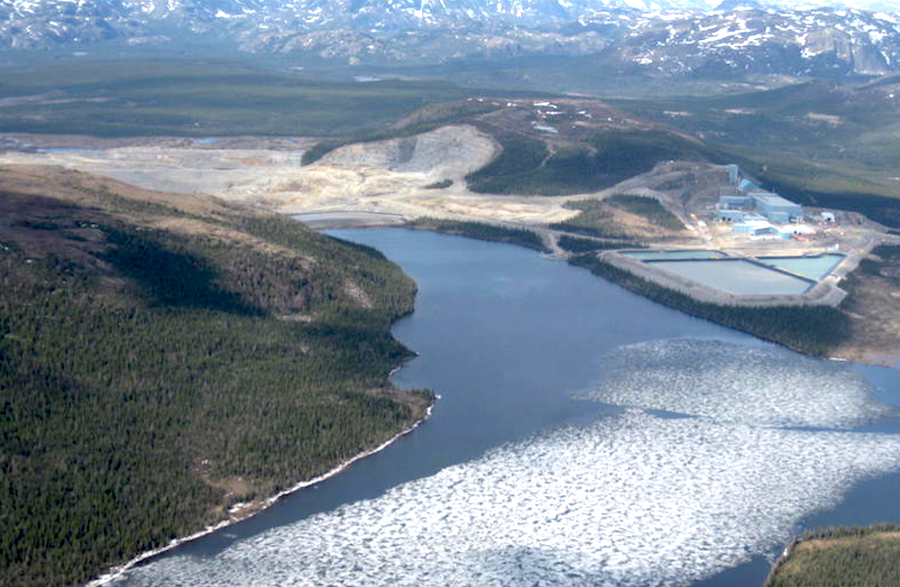Canada’s miners struggle with covid-19 challenges

The coronavirus has forced production cuts and closures among major Canadian mining companies, denting plans to take advantage of a deal aimed at increasing exports to the US.
Canada is among the world’s top mineral producers. The sector often operates in rural or remote areas and workers live in close quarters, presenting them with risks from covid-19, the disease caused by the virus.
Their proximity to indigenous communities, many of which have residents who work in the mines, has created additional concerns about the spread of the disease.
Industry groups are now grappling with a range of new health and safety protocols imposed by provincial and territorial governments and voluntary actions to protect nearby populations. Some measures include paid leave, reduced workforces, and social distancing throughout facilities.
“Without doubt, costs associated with production are going to go up,” Ben Chalmers, senior vice president at the Mining Association of Canada, said in a recent interview.
Mining pact stalled
Canada and the U.S. signed an agreement in January to increase the cross-border mineral trade and to collaborate on securing supply chains for 35 minerals deemed critical for strategic industries.
But the Quebec government has shuttered exploration projects during the outbreak, hurting lithium and graphite companies, Josée Méthot, president and CEO of the Quebec Mining Association, said in a recent interview.
Natural Resources Canada is taking suggestions from industry leaders on how to help the exploration sector
“All of the development projects are stopped, all exploration is stopped,” Méthot said. “We think that there’s still a space for Quebec to be a producer for critical minerals.”
Both the U.S. State Department and Natural Resources Canada have said they remain committed to the agreement. The U.S. government has kept the border open to critical minerals, and the State Department is monitoring the pandemic’s effects on the sector’s supply chains, an official who spoke on background said.
Both sides are holding a bilateral meeting to evaluate progress on the action plan later this year, the official said.
Concerns about the coronavirus also stalled negotiations between Quebec’s Energy and Natural Resource Ministry and industry leaders on an action plan to boost production of critical minerals, including nickel, niobium, and cobalt.
The province plans to announce a re-evaluation of closed industries on May 4. The ministry didn’t respond to a request for comment.
Natural Resources Canada is taking suggestions from industry leaders on how to help the exploration sector, which discovers mineral deposits and develops them for mining, as it faces pandemic-related challenges, an official also speaking on background said.
Other provinces, like British Columbia and Ontario, have allowed mining exploration to continue, but asked industry leaders to follow pandemic-related health guidelines. This includes such things as social distancing and allowing workers to spend larger blocks of time at home or at work, reducing time traveling in and out of facilities and reducing the chance of an infected person coming in.
Indigenous considerations
Canadian mining companies are also keeping in mind the needs of indigenous communities, whose residents work in the mines.
Brazilian miner Vale halted production at its Voisey’s Bay nickel-copper-cobalt mine on care on March 16 to protect its nearby Nunatsiavut and Innu communities and will continue those measures into August.
Agnico Eagle Mines sent home all Inuit workers at two mines in Nunavut, Canada’s northernmost territory, with pay in mid-March to prevent the disease from spreading into their communities. Agnico Eagle Mines hasn’t yet decided when it will ask them to return to work.
There are concerns in Cree communities in northern Quebec about lost work at the region’s three mines and exploration projects, but many people remain anxious about the virus because of risks such as overcrowded housing, Cree Nation Grand Chief Abel Bosum said in an interview.
“There’s no question our communities are very vulnerable,” Bosum said.
(By Gregory Henderson, Rebecca Baker and Renee Schoof)
{{ commodity.name }}
{{ post.title }}
{{ post.date }}




Comments